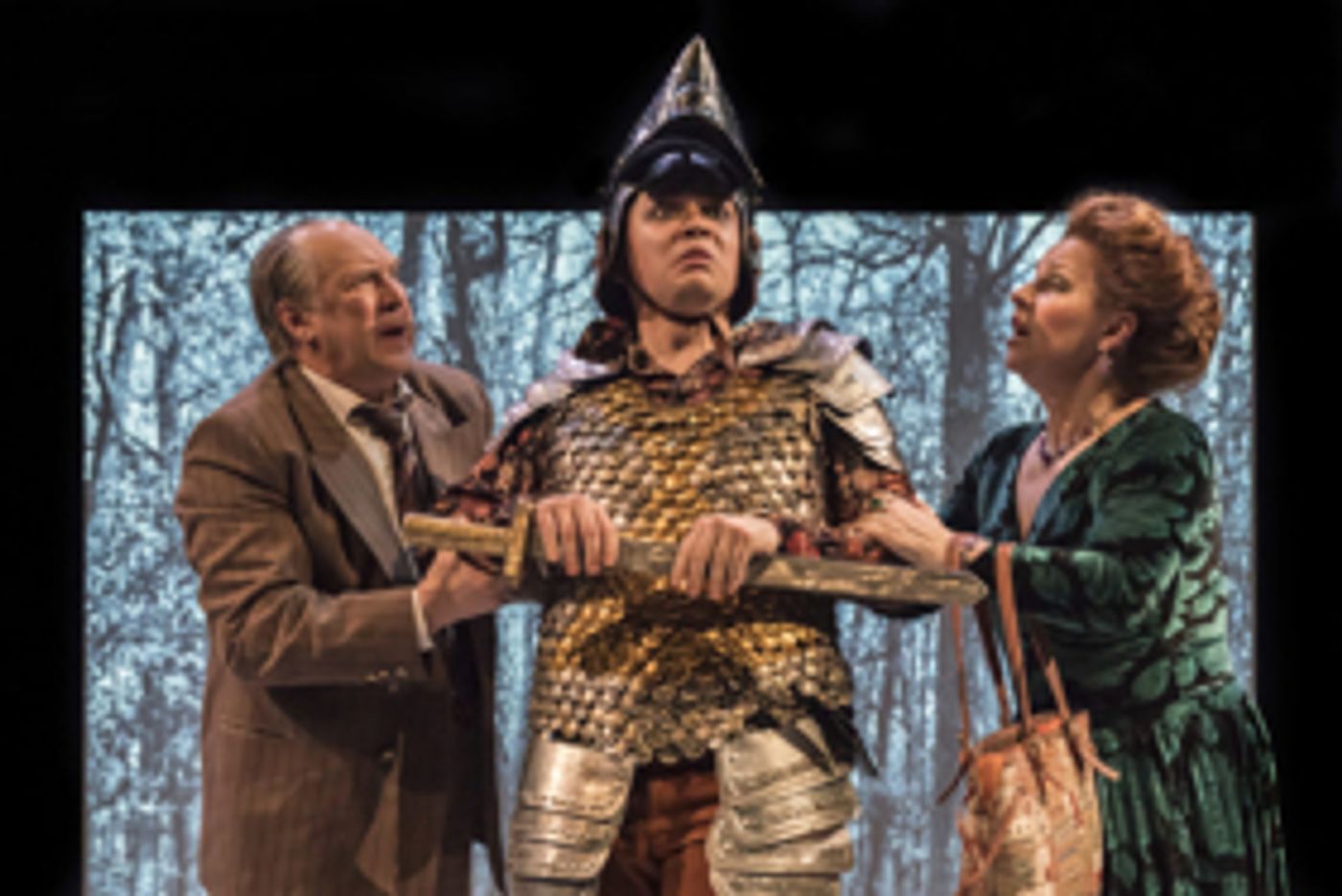Interview: Alexander Feklistov Talks THE KNIGHT OF THE BURNING PESTLE at the Barbican

and Agrippina Steklova
Cheek by Jowl reunite with Moscow Pushkin Theatre for the first time since Measure for Measure in the outrageous dark comedy, The Knight Of The Burning Pestle.
BroadwayWorld talks to actor Alexander Feklistov about the play.
What was the development process for this production of The Knight of the Burning Pestle?
The process of developing the show was a traditional one for Declan Donnellan and for those who have worked with him before.
We first try and bring out the main themes of the play. Then we pan out territories or areas in which the action takes place. In this case, Venturewell's house, the forest, the Merrythoughts' house... And then we do études (studies or exercises) trying to imagine what our life would be like in those spaces we have established.
This development period always happens away from Moscow, in the woods. This time we were in the Kaluga region, in the Russian countryside. So, all our études took place either in the real forest, or in the hotel rooms, lobby, restaurant and its wonderful rehearsal room.
Then we started doing 'sketches' about our characters. For instance, Agrippina Steklova and I play a married couple of grocers, so we improvised scenes imagining our everyday life at the shop, selling things, singing together. We researched our characters by imagining and acting out scenes from their everyday routine.
How has the play been received in Paris, Moscow and Madrid? How do audiences differ in their reactions?
We opened the show in Paris - shows there are always very different from the Moscow ones, because audiences in Western Europe are much more attentive than in Russia. They never allow themselves to applaud in the middle of the show, while Russians are often much more emotional: they clap, they laugh, they are more expressive during the show, while in Spain and France people tend to be more attentive. But the show was very well received in all of those countries.
It's hard to say nice things about ourselves, but the fact that the theatres were packed by the end of the run must mean something.
For the Spanish and the French the story of people invading the stage during the show feels fictional, but in Moscow we already had precedents of people crushing exhibitions and walking onto the stage. And as much as we are scared of it as actors, we watch it with great curiosity as spectators.
What is the relevance of 400-year-old play, largely set in London, to the Europe of today?
Like the example I just gave, we see similar situations happening in real life here!
In Soviet times, we didn't really talk about social satire as it was prohibited. All the conflicts were between a good person and the better one. Now we are at the stage when we can show satire, we can try and look at ourselves in the mirror. We see people who try to set their own rules.
There is a Russian proverb which says "Don't come into a monastery with your set of rules". But many people do. And that creates a point of conflict.
Once, during a show, I experienced what it's like when audience members were screaming: "Shame on you!". Friends of mine have had the experience of people actually climbing onto the stage to try and stop the show.
Recently, there was an attack on an exhibition when people sprayed faeces over works of art. So the people trying to influence art and how art stands up to it or gives way...all those themes are in Beaumont's play and we tried to explore them as they are very relevant to what's happening with art in Russia.
What are the challenges facing a Russian company working internationally?
We certainly don't experience any language barriers working with Declan. He gives actors so much freedom, we get to develop our characters and we can improvise and experiment in rehearsal and then he strips off what is not needed.
Touring internationally is a big treat for us as we get to experience different reactions of different audiences. As for the challenges I am not aware of them, if there are any - they get resolved by the company's management without hitting us.
What would attract a London theatregoer to the Barbican to see this production?
First of all, the name of the director! I don't think he has ever let the audience down with his direction, taste, expressive minimalism, refined and witty humour. If there are fans of Donnellan and Ormerod, they will know some of us already, and we try to help Declan and Nick as much as we can. So, we can guarantee a certain quality of the show.
Please come!
What's next for you after The Knight of the Burning Pestle?
My next project has already started. It's not related to Declan and Nick. I am rehearsing Chekhov's Bear with Vladimir Pankov at the Centre of Drama in Moscow. There are 10 musicians and many singers and, with my partner Elena Yakovleva, we are trying to break through this feast of music.
The Knight Of The Burning Pestle is at the Barbican 5-8 June
Photo Johan Persson

Videos

